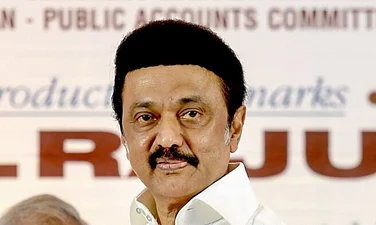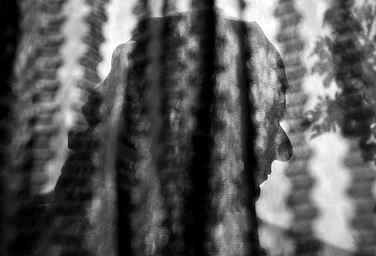THE Shiv Sena and its parliamentary party leader Madhukar Sarpotdar are heading for trouble for publicly spouting their brand of communal politics. First, the Shiv Sena MP justified his party’s use of retaliatory violence while deposing before a judicial commission about his role in the January ’93 riots. Aghast, lawyers and civil rights activists are examining the possibilities of getting the Sena disqualified as a political party with no right to representation in Parliament or the state legislature.
Among the questions Sarpotdar was asked when he appeared before the Srikrishna Commission was whether he could justify the killing of innocent Muslims in Colaba in retaliation to the slaughter of Hindus in suburban Jogeshwari. In the past, the Sena has cited this incident as its reason for punishing the Muslims. Sarpotdar reiterated this position before the Commission. He justified the killings, describing them as "a natural process" and also defended the retaliation as party policy.
"That means Sarpotdar and his party have no faith in the rule of law which is the basic feature of the Constitution. Since he has violated his oath as an MP, which is to uphold the Constitution, he has no right to remain one. And his party has no right to administer any state, especially an important one like Maharashtra," says Yusuf Muchhala, the senior advocate who had asked Sarpotdar the crucial question. Muchhala, who represents the All-India Milli Council and Lawyers’ Legal Aid Forum before the Commission, says Sarpotdar’s reply indicates that he and his party are functioning outside the Constitution.
The Sena and its chief Bal Thackeray have always upheld their right to retaliate with impunity. But when it comes to a member of Parliament who has taken an oath to uphold the Constitution, stating his faith in such methods before a judicial commission spells trouble. "We have been getting several letters asking how such a party can continue to run a government," claims inquilab editor Haroon Rashid, whose house was torched during the riots. A legal reaction to Sarpotdar’s controversial deposition may not be far off as some senior lawyers are studying ways of putting the Sena MP and his party in the dock for their stengun style of politics. The Sena, in a statement filed before the Commission, had said "the January riots were in retaliation, and it was a feeble retaliation." Official estimates peg the number of people killed at 900 while civil rights groups say some 1,200 to 1,500 were killed in the bloodbath.
The People’s Union for Civil Liberties (PUCL) is pushing legal representations to the Election Commissioner and the Lok Sabha Speaker, urging both to take notice of what has been said and to initiate appropriate action against the party. "It shows he does not believe in the rule of law but is partial to the law of the jungle. It is a serious offence. But we have to seek action carefully as there is no precedent of steps taken in a case of breach of oath," says Yogesh Kamdar, all-India vice-president of PUCL.
Justice B.N. Srikrishna, who heads the Commission, was expected to put the Sena in the dock when he rejected a plea against cross-examining Sarpotdar, then an MLA, last December. Sarpotdar had made a noteworthy contribution to the riots by making an incendiary speech on January 12 outside a police station in his suburban Bombay North-west constituency. Houses were looted, burnt and Muslims killed after the speech where he told followers that not a single Muslim house should be left intact. A day earlier, he had been detained by the army which was deployed in parts of the city. Sarpotdar and his two associates were found carrying three pistols and two hockey sticks. A case was registered against him under the Arms Act. Nearly a month later, he was detained under the NSA.
Rather than face the prospect of Sarpotdar talking them into trouble, or Thackeray being summoned around the time of the general elections, the Sena found a way out of a sticky situation—they scrapped the Commission. But soon after the elections, and at the instance of the Vajpayee government, the state government hurriedly announced its reinstalment. The step was an effort to project a last-minute secular image for the shortlived BJP government at the Centre. It was also seen as an attempt to bail the ruling Sena-BJP out of trouble with the next government and courts of law. But the Commission has done just what the Sena wanted to avoid when it scrapped and then reinstated it. The commission has brought bad news and more trouble.


























